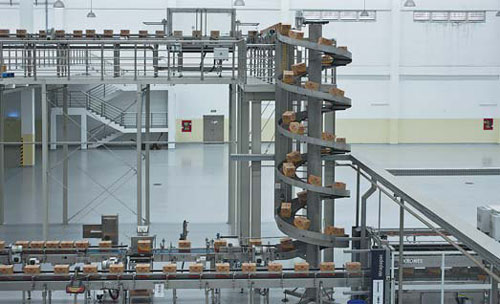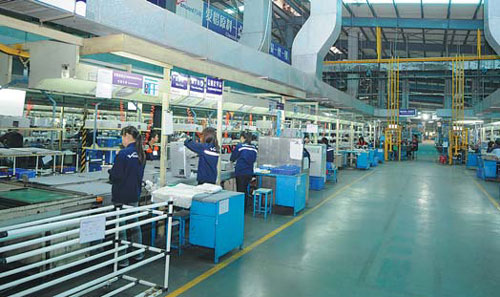Local firms embrace new technologies
By Xu Jingxi in Foshan, Guangdong (China Daily) Updated: 2015-09-10 07:53The "Internet Plus" strategy has achieved initial success in Foshan, with local enterprises adapting to market changes, embracing new technologies and business ideas.
Haday, a flavoring producer with a market value nearly 90 billion yuan ($14 billion), sees promising e-commerce prospects and expects this year's online sales to be five times that of last year, according to Long Fei, manager of the enterprise's brand department.
"We don't simply put our products on the shelf online. We have designed new products that suit online shoppers' consumption habits and that are easier to deliver. For example, we shrunk the size of sauces from 200 grams per bottle to 20 grams and it has been very popular online," Long said.
He added that Haday established dedicated workshops to make products exclusively for e-commerce sales.
E-commerce may be the first step to go online for many enterprises, but Long said that Haday started using information technology, such as Ethernet, the Internet of Things and big data, to increase productivity and quality.
For instance, salespeople can check inventories in real time and make restocking orders via their cellphones. The company's intelligent management system distributes the orders to different production lines.
Every box of products has an electronic code so it takes just two minutes for a box to be selected out of 3 million piled up in a 30-meter-high warehouse by machines at Haday's manufacturing base in Gaoming district.
The electronic codes can help trace products back to specific production lines if there is something wrong with the quality of the product.
Magical 'cloud'
"In the Internet age, it is too slow for decision-makers to wait for data reports from subordinates. It is a trend for enterprises to build their big data with the help of mobile Internet and cloud computing," said Liao Qingyao, a science and technology manager of Guangdong Vanward New Electric Co.
The gas appliances manufacturer started building a cloud platform in 2012, cooperating with China Aerospace Science and Industry Corp.

The cloud platform, which went into operation in March, automatically collects and analyzes sales figures from all retail stores and dealers of Vanward's products.
The platform reformed its after-sales services by building a mobile Internet network of engineers.
Customers no longer have to wait for call centers to handle their repair queries, but can make the requests via a cellphone app and engineers nearby will compete for the order by arriving as soon as possible.
In the future, customers may also be able to have an appliance made to order and check the production progress in real time via an app, Liao added.
Jinlan Group, an aluminum product maker, has also been working with CASIC on a cloud platform. The company asked its suppliers to register on the platform and about 30 percent of purchases are now done online, which reduced purchasing costs by 3.7 percent in the first half of this year, according to Zhou Baojuan, Jinlan Group's executive director.
"Cloud services can reduce operational costs and increase work efficiency, which is of great help especially for fast-developing companies," Zhou said.
Other players in the industry chain, including designers, materials suppliers and third-party service providers such as guilds and financial institutions, use the platform. With support from cloud computing technology, they can quickly find their ideal match and make deals online.
xujingxi@chinadaily.com.cn
|
The automatic packing line at flavoring producer Haday. The company sees promising e-commerce prospects and has established dedicated workshops to make products exclusively for e-commerce sales. |
|
Workers on the water heater assembly line of Guangdong Vanward New Electric Co. The gas appliances manufacturer built a cloud platform to collect and analyze sales figures. Photos Provided to China Daily |
(China Daily 09/10/2015 page6)
- Xi urges all-out efforts to win battle against poverty
- Guideline speeds access to drugs
- China launches second remote-sensing satellite for Venezuela
- Xi urges solid efforts to win battle against poverty
- President has stimulated scientific connections
- 705 million trips taken during holiday break
- Anti-graft drive wins public satisfaction
- Five bodies found in toppled Chinese fishing vessel
- Canal flows into heart of Tongzhou
- RUC congratulated on 80th anniversary









